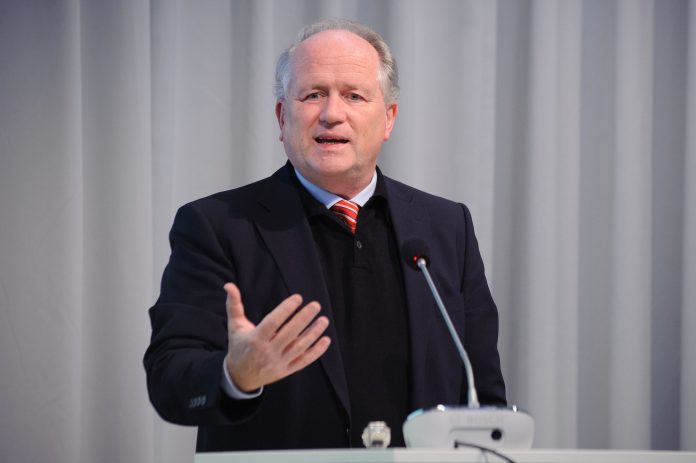We must print money says the former German Finance Minister Heiner Flassbeck, in sufficient volume to reign of interest rates, now, as the economic impact of Covid-19 unfolds.
Flassbeck served as State Secretary for Finance next to Finance Minister Oscar Lafontaine. Like Lafontaine, he opposed the now much acclaimed “agenda 2000” that paved the way for German labour market deregulation, a sharp drop in welfare spending, paving the way for the “German miracle” that took place during the crisis.
He is often considered a “heretical voice” in the fiscally prudent Germany that demands zero-deficit budgets. But this is not a time for ideological debates, he notes. Now is the time to act because the global economy is facing a challenge far bigger than what we faced in 2008. And we cannot afford to show the same kind of complacency. Should we fail to take action”, there will be no Europe left, or no Europe as we know it,” he says.
European Interest: How consequential do you think this will be for the European Economy.
Heiner Flassbeck: Very consequential. It will have a bigger effect than anything we have ever seen before. Some people “professionalise their optimism,” but we must realise that the economic effect will be tremendous.
I am not an epidemiologist and I cannot comment on whether or not our response to the crisis has been correct or adequate. But it is clear that it will be consequential in economic terms.
How do you view the role of Germany in this picture?
The data that came out on Tuesday (March 31) is that a number of companies are moving to turn their labour force to temporary workers.
From the data, we can extrapolate that eight million people in Germany will be paid 60% of their salary from the government. To be clear: yesterday, there was an estimate of the loss of 8,000,000 short-temp jobs. These will be unemployed but will get 60% of their wage by the government.
Yes, and we see that Germany has left the “Golden Rule” of zero net-borrowing behind, determined to borrow €150bn Euros in an overall €750bn package.
Yes, for itself, Germany is being pragmatic but for the rest of Europe quite dogmatic. The German position in Europe is quite stupid. If the Dutch and the Germans do not realise the size of the challenge before us there may be no Europe as we know it to speak of by the end of the crisis.
We need to react quickly. The ECB needs to convene now and come up with a public assurance that it will guarantee liquidity for the state, or else we risk losing Europe as the states will need to go it alone
So, what is the path ahead?
Simple. The State will issue bonds to cover its needs. The ECB will buy these bonds to keep interest rates ultra-low. Money printing and nothing else. That is the core of the matter.
But Germany says that this is going against the Treaty of the European Union as we cannot finance debt. We have three precedents that say the contrary and we do not have the time to drag this debate for too long.
We need to react quickly. The ECB needs to convene now and come up with a public assurance that it will guarantee liquidity for the state, or else we risk losing Europe as the states will need to go it alone.
What about the view that states in the south do not have the fiscal space to borrow?
That is a debate that will be interesting to have when all this is said and done. Now, the ECB needs to keep interest rates low, the states need to borrow, and we need to deal with the crisis. Everything else is nonsense.
We are in emergency that is much bigger than 2008.
But this is changing the role of State and Society. The state is becoming an employer and not even in the context of goods and services. This is the closest we can get to Friedman’s “helicopter money.”
We can have this discussion on three or four months. These are not interesting questions at the time. It is possible that Europe does not exist at the end of this crisis. We need to focus minds.

